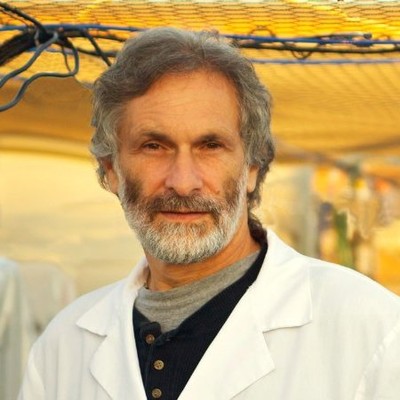Episode 5


About the podcast guest
Jonathan Trent attended Yale and UCSC, and was the lead scientist of NASA's OMEGA project, a system of floating algae pods to produce biofuels whilst purifying wastewater and providing food for aquaculture. He has now left his Civil Servant position at NASA to found UpCycle Systems to address the escalating food, water, and energy crises, although he is still a part of NASA's Astrobiology Institute where he studies life forms that may exist in worlds beyond Earth.
Jonathan talks to us about why he felt obligated to take a risk and leave NASA for Upcycle, what his goals are with this company, and his incredible journey within sustainability!
Some Questions We Ask
- You once wrote "I know this will be risky, but I feel an obligation to try to make a difference." This is a bold and selfless statement. Can you talk to us about your relationship with risk and failure? What gave you the courage to leave your job at Nasa to try and make a difference in the world?
- Can you tell us a little bit more about your work with NASA on OMEGA, your biggest learnings, and your biggest challenges?
- How do you approach working on projects that have never been done before? What does the roadmap look for those projects and how do you adapt if something does not go to plan?
- You are putting existing technologies into ecosystems, to increase food productivity and profitability, while conserving water and energy and decreasing environmental impact. Why do you think food productivity and profitability is an area ripe for innovation? Do you think enough people are working on this problem, why or why not?
- Do you think there is a disconnect between the research/academic world and the entrepreneurial world? If yes, why do you think this is the case?
Top Quotes
So we see that clearly there are these huge problems globally with food, water, and energy related to both the population and urbanization but also the lifestyle people are expecting. That combined with climate change which is an unexpected or maybe it was expected but unfortunate consequence of the energy use that we have by mobilizing this carbon that used to store solar energy from millions of years ago. The fact is that we are having this huge impact on the planet. You know what I love about my job is that I meet a lot of founders from all across the spectrum and it's very interesting because one of the things that I personally like to do is anytime I meet a founder, specifically who may be a CEO or not. Maybe there's someone else who is the CEO of the company. Is that often dig into what, what sort of pushed them to find that startup and everyone has a very interesting story. So, you know, the number one advice I would say is if there is something if you're looking to solve something, make sure you're solving simple things. Like, you know, don't go to solve, like I'm building, like an airproof jacket for people on the moon. Not gonna happen, right. But look to solve simple things because simple things, solving simple things are what catches the maximum total addressable market.
Action Items, Ask Yourself the Following Questions:
What are you planning to do with your life? Where do you expect to be in the next 5-10 years?
How can your life be less impactful on the environment and how can you make a more sustainable future for yourself and others?
How do you influence others, both health and environmental-wise?

